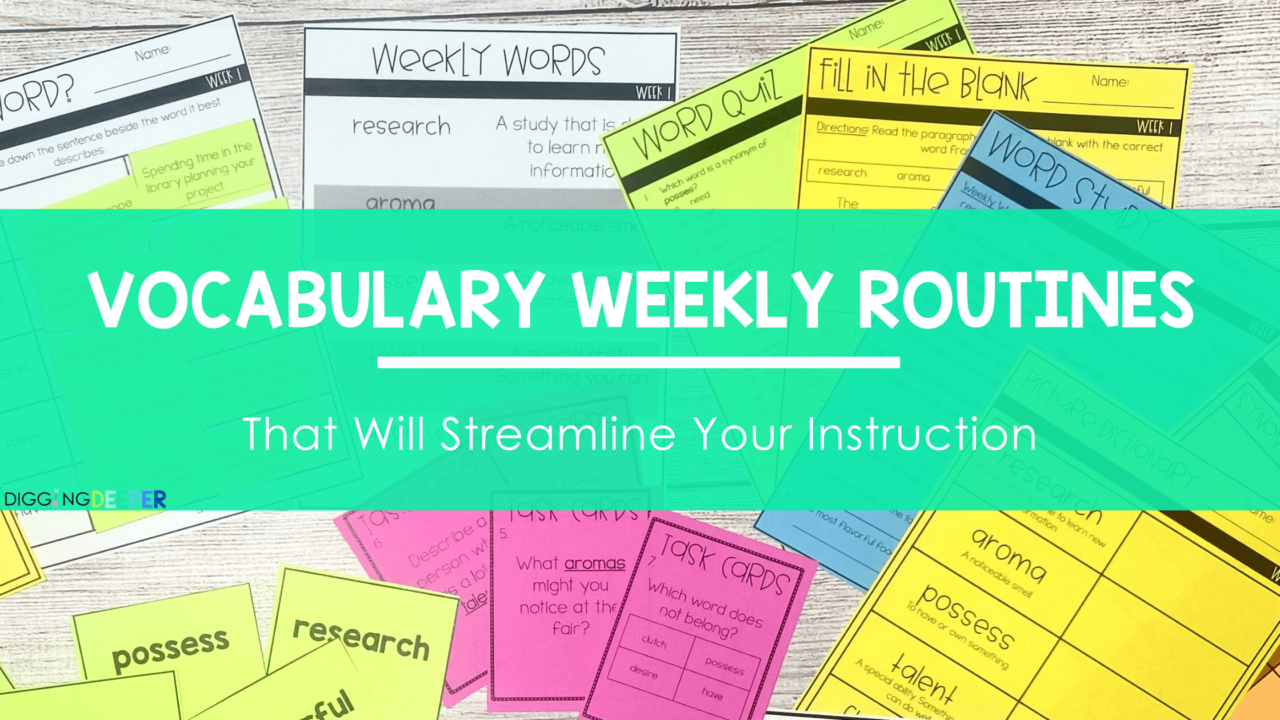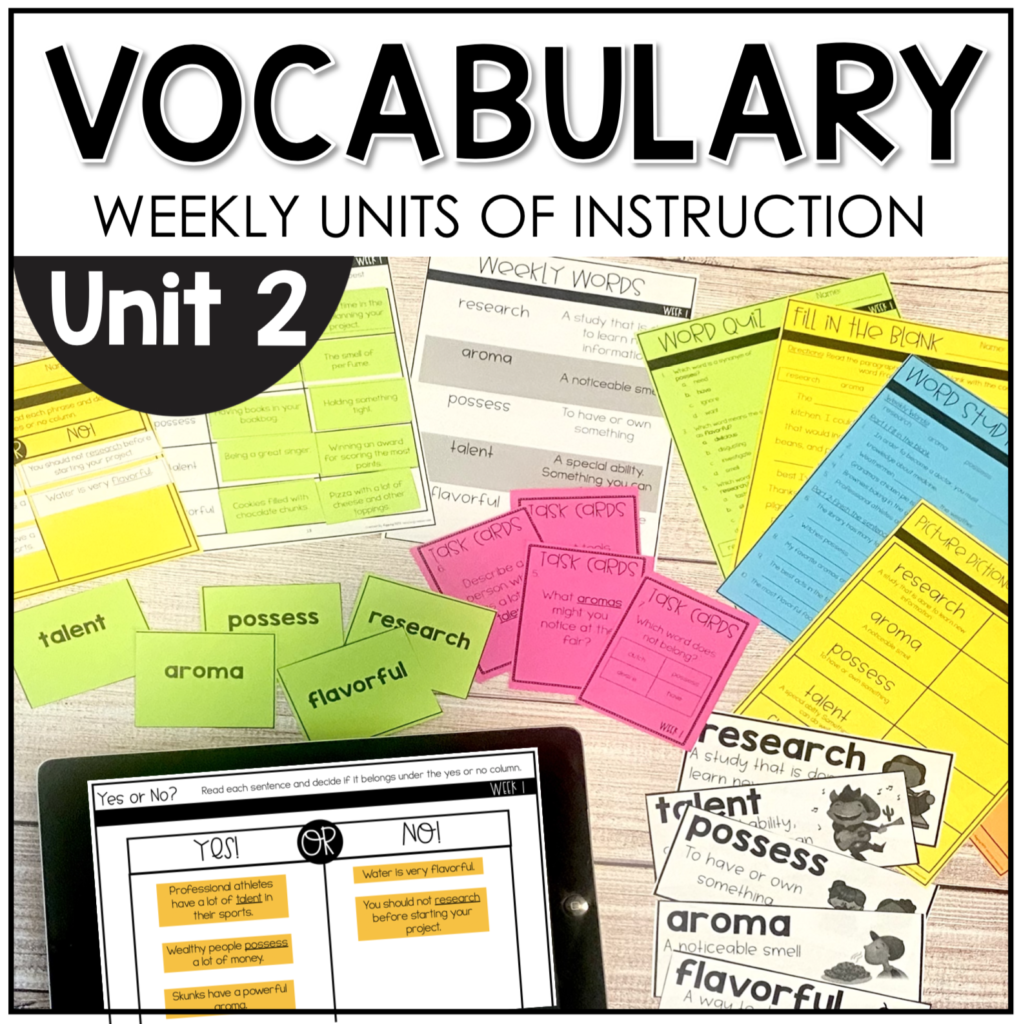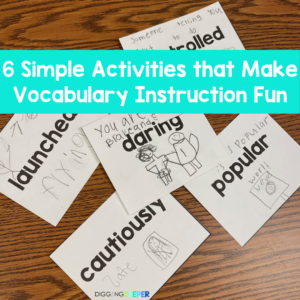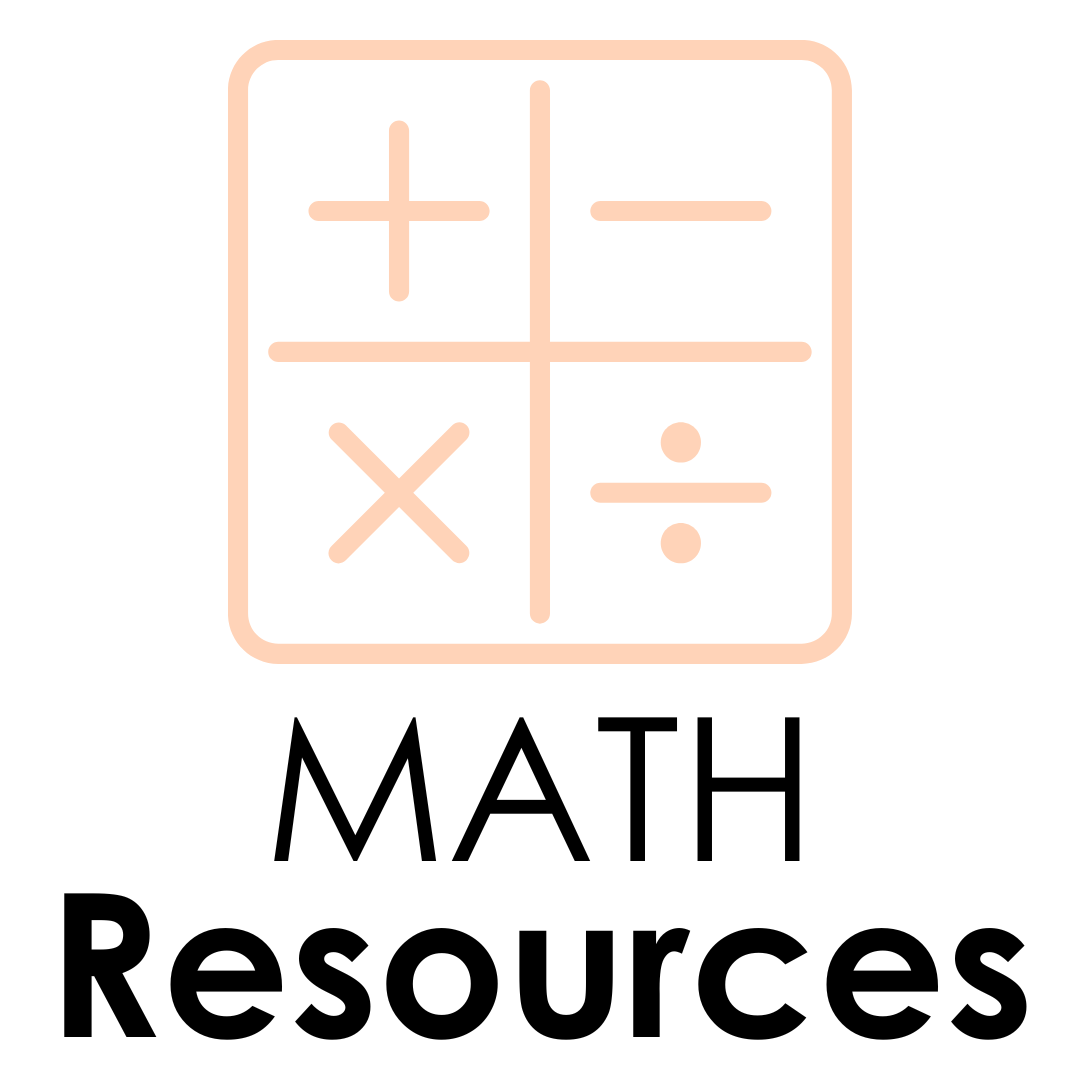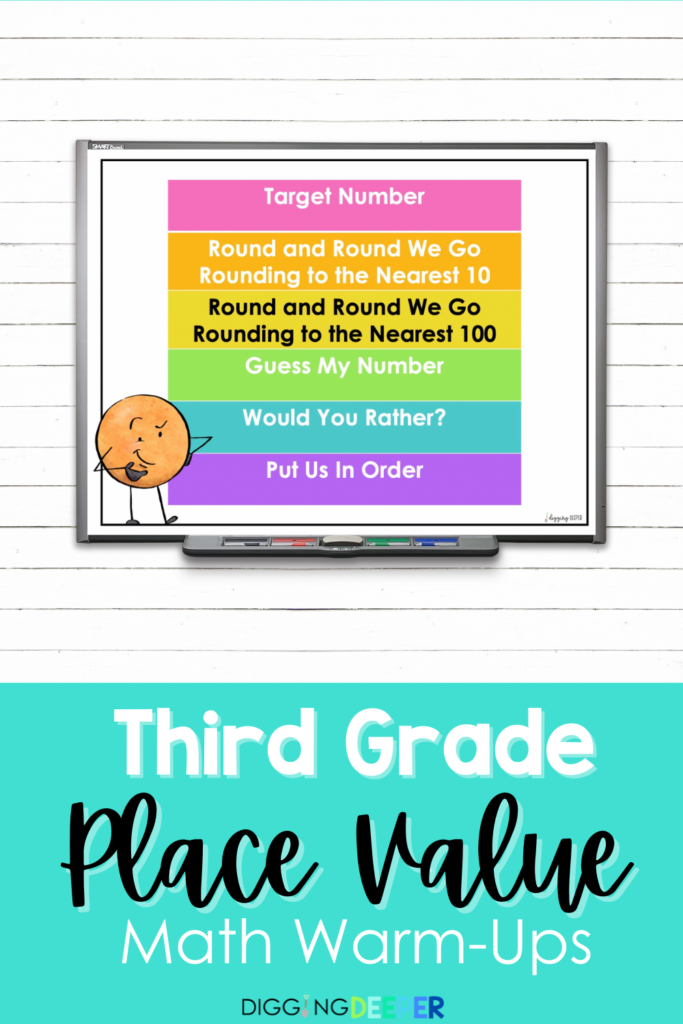Let’s talk about weekly vocabulary activities for elementary students. I’ve compiled a list of weekly activities I use with my third graders. These engaging vocabulary strategies are sure to help your students master their weekly vocabulary words.
Finding the right weekly vocabulary words
Research shows students benefit from the explicit instruction of Tier 2 Vocabulary words.
It is important that these words are carefully selected. They should be words that students will encounter in their reading. Therefore, learning these words will positively impact reading comprehension.
I choose to work on 5 new words a week. I also keep our previously learned words close and review them often. This helps ensure students are not learning the words just for the weekly assessment and then forgetting them.
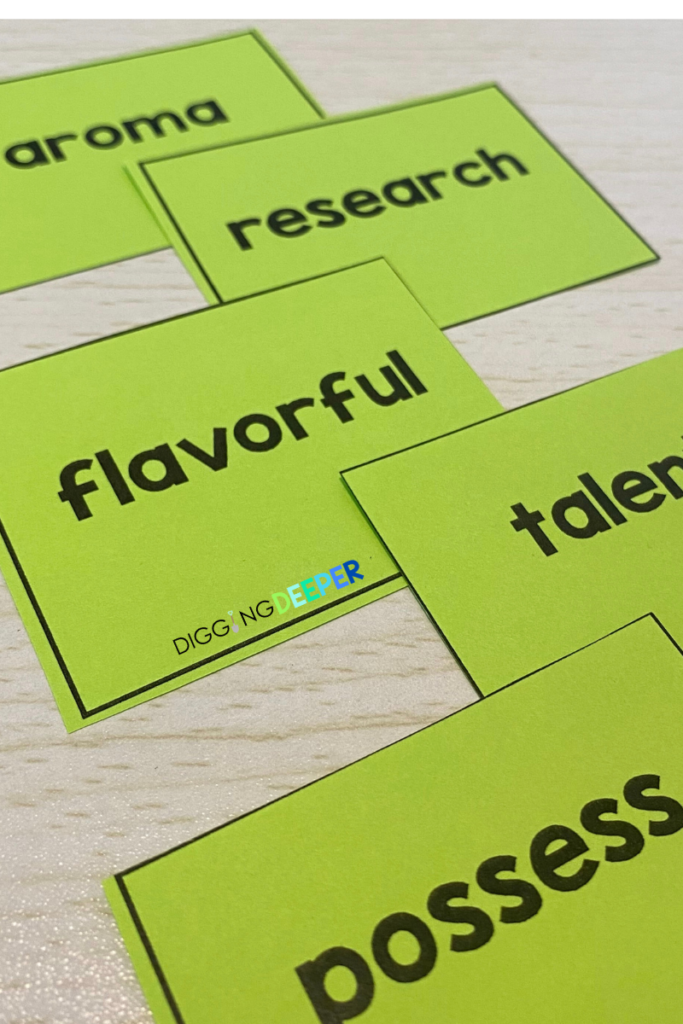
Weekly Vocabulary Activities
Routines are critical for classroom instruction to run smoothly. In my opinion, the more routines, the better! Students like knowing what to expect. And they don’t love surprises.
I have routines for all aspects of my school day, and vocabulary instruction is no exception. My routines are based on a 5 day school week, but you can make adjustments to suit your classroom needs.
Having vocabulary routines does not mean you have to do the same things every single time. I’ll show you different weekly vocabulary activities that can be done, while still keeping with an established routine for instruction.
Day 1: Introduce Words
On day 1, we need to introduce our new words. Many researchers agree that explicit vocabulary instruction is needed for students to master new words. I do all of my explicit instruction on day 1.
Here are some MUST-DOs for Day 1:
Provide each student with a list of vocabulary words and a student-friendly definition. If we want students to learn a word’s meaning, we need to provide them with a definition to use as a reference! They can keep this handy in their vocabulary notebooks, homework folders, or any other organization tool.
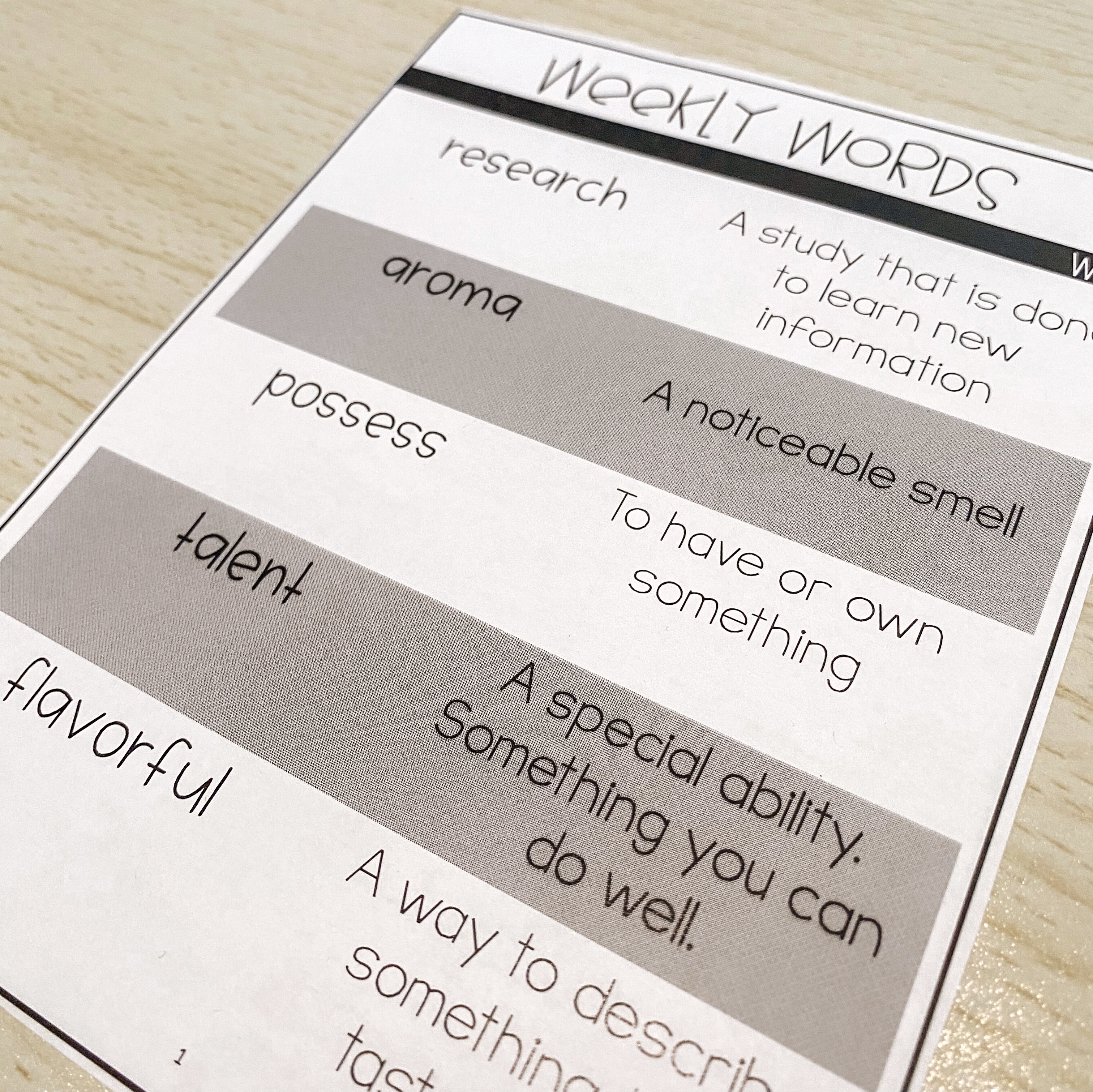
Present the words to the class. You can do this with a digital presentation, or with vocabulary cards. Students need to hear you correctly pronounce the word. This direct instruction also clears up any misunderstandings that students have about the given word.
A very important DO NOT do:
I’ve read several books about vocabulary instruction (I’ll link them at the bottom of the post). Experts agree it is not beneficial to show a new word and ask students to raise their hand and say what they think the word means. I am definitely guilty of doing this! It’s just natural. However, I understand the reasoning behind not sharing definitions. Students may provide a definition that is completely wrong. We don’t want other students in the classroom to hold on to that misconception instead of catching the correct meaning.
May-do’s for Day 1:
These are extra activities that I sometimes do with students on the first day of introducing words.
Create vocabulary cards for a word wall. If you have a word wall or a place in your room where you display the weekly vocabulary words, you may want students to create cards for this board. I give my students a blank notecard with the word written in a black sharpie. Students draw a picture of the word and add a quick definition or synonym.
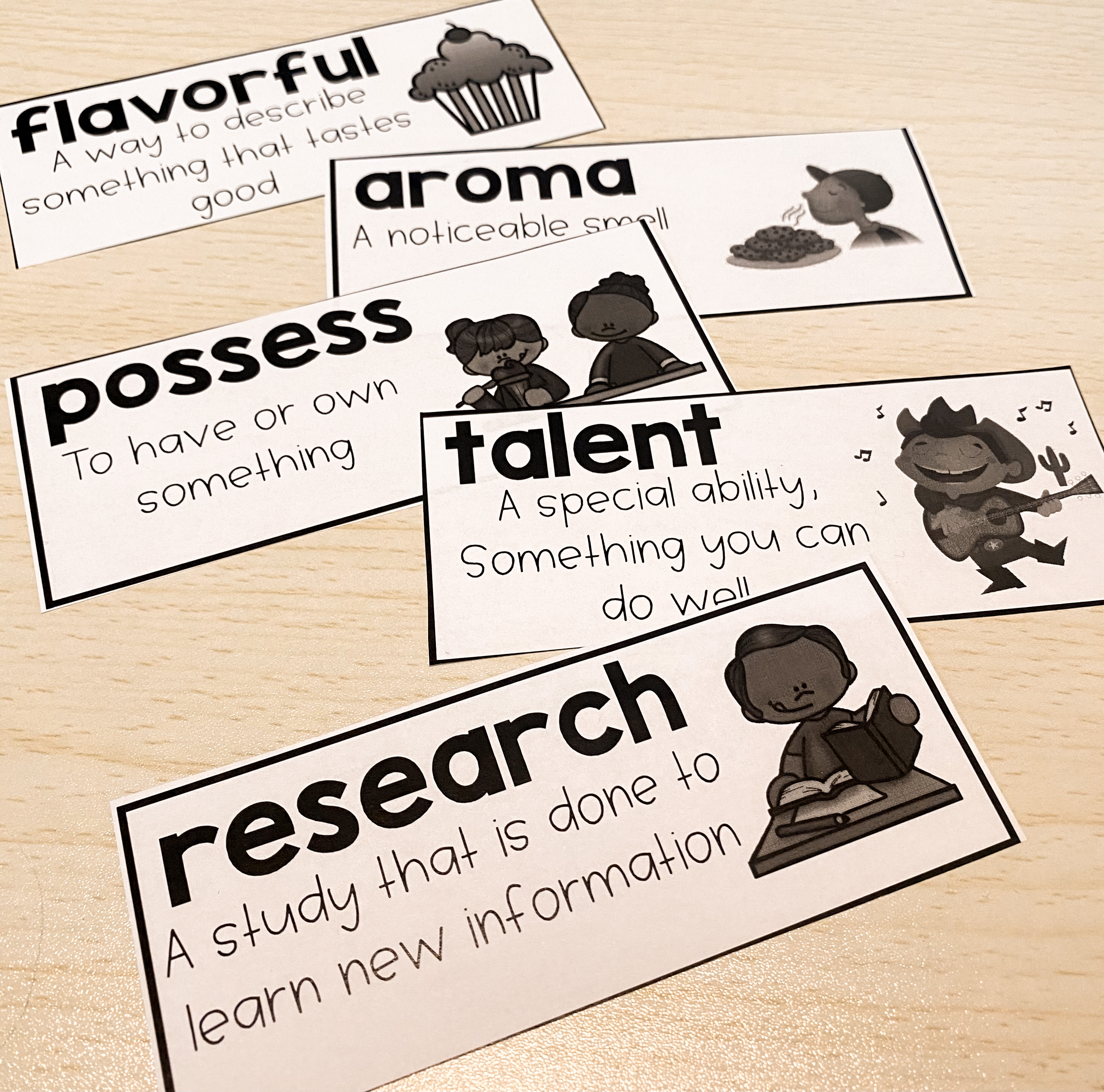
Another idea is to give students the definitions first, then have students guess what the word could be.
You could also show a picture that matches the word and ask students to think of which word it could be.
Days 2, 3, 4: Practice the Words
Making time to work with the words is critical for students’ mastery of the vocabulary words. Studies show students need to see a word 10 times before they “own” it! That means you need to plan multiple activities for students to work with the words. It is imperative that teachers focus on the weekly vocabulary words throughout the week. Otherwise, weekly instruction is not beneficial and therefore wastes time! We can’t just rely on students to take the list home and learn the words. It won’t happen that way.
I like to mix up the weekly activities so students are not bored with the instruction and it always feels fresh. Here are some example activities you can do each week as part of your weekly vocabulary routine:
Play the Yes/No game. Students read sentences and decide if “yes” the word is used correctly in the sentence, or “no” it is not.
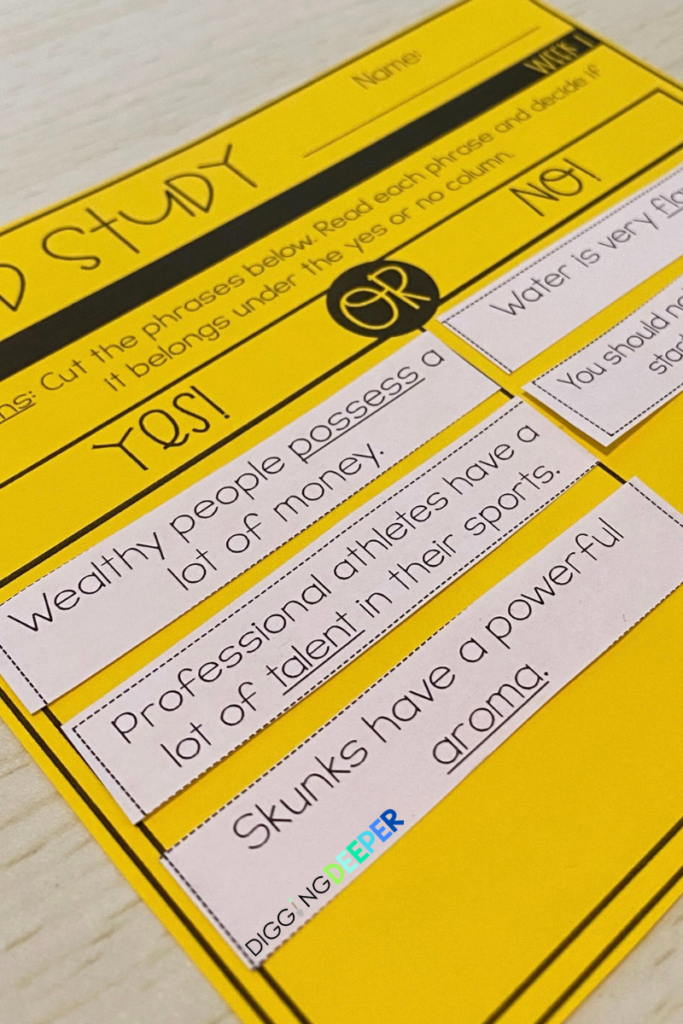
Which word? Students read the sentences and decide which word they are describing.
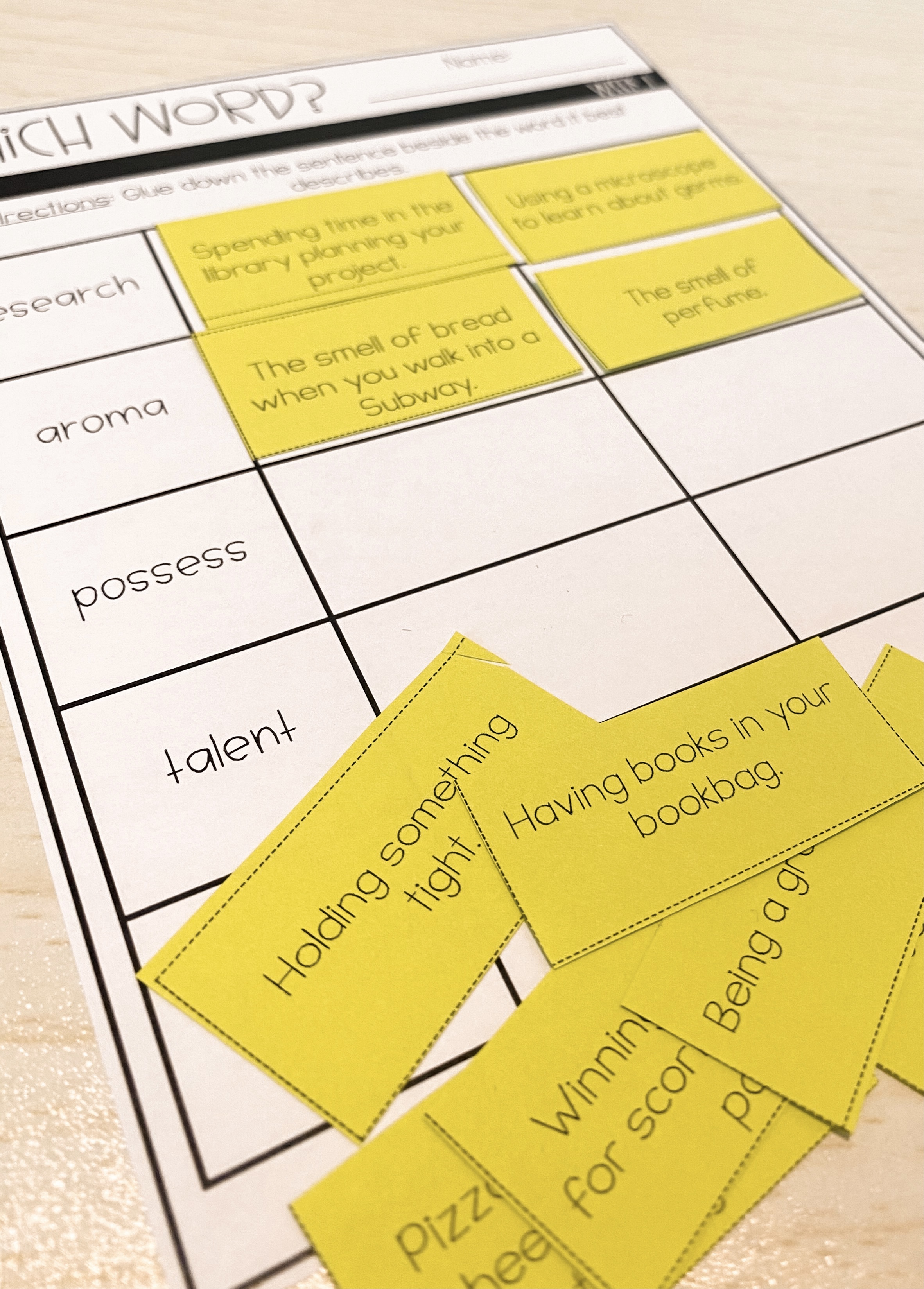
Create a picture dictionary. Students love this one. This activity gives your young artist a chance to explain a word without using words!
Brainstorm Synonyms and Antonyms. This activity seems simple, but it’s powerful. Brainstorming synonyms and antonyms takes your 5 weekly words and really expands them. Every time I do this activity, I hear students suggest EXCELLENT word choices for their synonyms and antonyms. The cool thing about this activity is that it can be done digitally on a Jamboard, with Post-It notes on an anchor chart, or quickly on your students’ desks with an expo marker.
Day 5: Assess
Fridays are for a weekly assessment. I keep my assessments quick so they don’t take up too much time. Usually I have a few multiple choice questions about synonyms and antonyms and a few fill-in-the-blank sentences.
Sometimes my students complete these assessments on paper, but they can also be done digitally. I like using Google Forms when I want my students to take a quick online quiz.
Maintaining words after the week is over
It’s important to continuously review previously learned words because we want our students to grow their vocabularies! If we only work on a few words each week, we aren’t helping our students maintain the word work we do each week. Here are a few ideas for spiral review activities with the weekly vocabulary words:
- Create a class word wall. Add the vocabulary cards to the wall each week. Students can reference the words when they find them in their reading, or if they want to use them in their writing.
- Review games during line up times. Take the extra few minutes in your day and review old vocabulary words. You could simply ask students to give some synonyms for a word as they line up to go to lunch.
- Vocabulary Headbanz game. This is a hit in my class! Students hold a word card over their head and the rest of the class gives clues about the word. The student uses the clues to guess the word they are holding.
- Quizlet. This free website is perfect for vocabulary practice. Students can log-in and play games with their vocabulary words. I create a list for each week and I group them together into one list. So, once we get to week 6 all of the previous weeks are there too & students are working with all 30 words instead of just 5!
Yearlong Weekly Vocabulary Activities
I have created a yearlong vocabulary study that I use with my students. You can download the list here to see which words are included. I chose Tier 2 words that my students encountered frequently in their reading. I paid attention to words students often missed on tests or asked me about during read aloud. The key focus of this weekly instruction is awareness of words which will hopefully lead to an increase in reading comprehension.
I love having this resource because I know everything is already planned out for me and it saves me a lot of time during the year. I can put my vocabulary planning on “auto-pilot” because I know it’s already taken care of. Click here to check out my yearlong vocabulary curriculum. Teachers everywhere are enjoying this resource!
Are you in need of quality vocabulary lessons that are already made for you? Click here to learn more about my yearlong vocabulary bundle.
Looking for more information about Vocabulary Instruction?
Check out this post about engaging vocabulary activities.
I’ve enjoyed reading the following professional books about vocabulary instruction:




